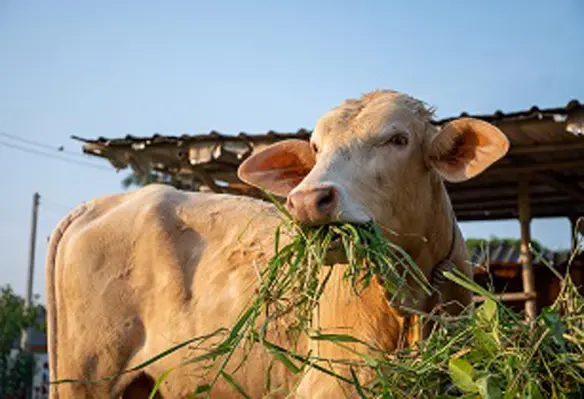In response to the recent outbreaks in Indonesia of Lumpy Skin Disease (LSD) and Foot and Mouth Disease (FMD) among livestock, the Food and Agriculture Organisation of the United Nations (FAO) and the Australian Government are collaborating to support the Indonesian Government in containing and controlling the spread of these high-impact cattle diseases
Thanks to an Australian Government contribution of US$792,000, FAO is working together with the Indonesian Government to increase the capacity of livestock officials and farmers to help them prevent and control outbreaks of LSD and FMD, while strengthening risk communications among targeted high-risk groups.
“Australians have a proud history of stepping up to help our neighbours, and we are very pleased to assist with efforts to stop the further spread of FMD and LSD within the region. These efforts require significant resourcing, technical expertise and collaboration, and we will continue to work together to support each other and share knowledge,” said Murray Watt, Australia’s Minister for Agriculture, Fisheries and Forestry.
“We hope that this additional support from Australia, through our colleagues at the FAO, can help reduce the negative impacts that these diseases can have on food security and the livelihoods of Indonesia’s farmers, while also protecting agricultural industries in other countries, including Australia,” he added.
While not a threat to human health, LSD and FMD are highly infectious viral diseases that affect cattle and other livestock. More than 600,000 animals in Indonesia have been infected by FMD and more than 11,000 have died, while farmers have been forced to slaughter a further 15,000. Indonesia had been free of FMD for more than 30 years, but in September 2022, the government reported that an FMD outbreak had been detected in 24 out of 34 Provinces. Since then, a further three provinces have been affected.
Meanwhile, LSD has infected more than 22,000 animals in 13 provinces in Indonesia, as the outbreaks continue.
The potential economic losses annually of an FMD outbreak can be as high as one trillion Indonesian Rupees (US$6.6bn).
"Livestock is a crucial component of many rural economies, providing food, income, and livelihoods for millions of people around the world. Controlling and eradicating diseases such as FMD and LSD is essential for protecting these livelihoods and ensuring a sustainable future for rural communities,” said Rajendra Aryal, FAO representative in Indonesia and Timor-Leste. “FAO is fully committed to supporting our member countries in achieving this goal."
The new agreement, entitled ‘Reducing the Impact of Foot and Mouth Disease (FMD) and Lumpy Skin Disease (LSD) Outbreaks and Building the Response Capacity to These Outbreaks in Indonesia,’ will be implemented over a period of one year.
To read more on what FAO are doing to support farmers to boost cattle trade, click here.




